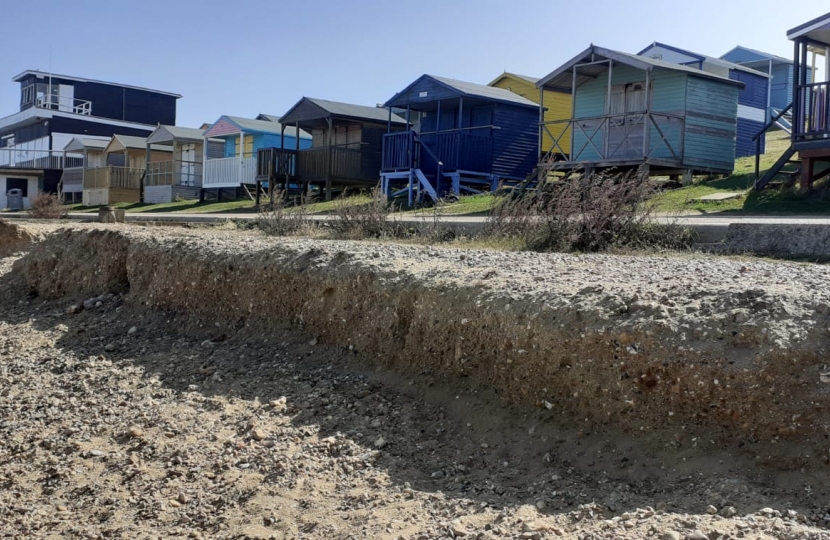
As the Chair of Canterbury Council’s Climate Change Working Group, I’m reporting back on the actions we are taking to help the Council become carbon neutral over the next ten years.
Clearly we have been working in the shadow of Covid-19 for the past six months, and it is right that the Council focusses on protecting the vulnerable during this public health crisis. Our Working Group stopped meeting for several months, restarting in August. However, even during the tough months of lockdown, our team have been working hard to keep the Climate Emergency agenda moving forward, as there is so little time to lose if we are to avert a climate breakdown.
Before I outline the work we are doing on our strategic plan to reach net-zero, there are a few very positive stories I can report on from recent months.
The hydrogen revolution begins in Herne Bay
In June the Planning Committee gave permission for Ryse Hydrogen to build the UK’s first green hydrogen plant on council land in Greenhill, Herne Bay. The hydrogen is produced using electricity from the offshore wind farm, making it a carbon-free source of fuel that will be powering buses and other heavy vehicles, instead of polluting diesel. This plant has the capacity to fuel 300 double-decker buses and make a contribution many times more than the carbon emissions of our entire district bus fleet.
Solar power for a brighter future
On the back of the hydrogen plant in Herne Bay, the energy company Vattenfall is making a planning application for a 20MW solar park on low-grade agricultural land, also in Greenhill. Once completed in 2022, this would be enough to power 5,000 houses, so will have a huge impact on decarbonising electricity use in our district. I am working to make this a community energy scheme, contributing directly to our carbon target.
e-Scooters: new meets old
Canterbury Council has been successful in its joint bid with KCC to the Department of Transport for a trial of e-scooters in Canterbury, starting October. As a heritage city with a large student population, we have an interesting demographic for this pilot and we hope it will show that e-scooters are a safe, low carbon alternative to car journeys, which can be rolled out in other similar cities.
IMPLEMENTING A ZERO-CARBON STRATEGY
As to the formal business of the Climate Change Working Group, below is a summary of the progress made.
1. Evaluation of current greenhouse gas emissions from council assets and operations
We have assessed the different types of emissions from our buildings, vehicles, equipment, procurement and construction. We have included all council assets including those leased to others - commercial buildings for example - and our council housing stock. We are using this information as a basis for developing our future plan.
2. Initial options for a carbon action plan
We have assessed options to reduce emissions from council assets and operations. We are now doing a more detailed appraisal of feasible options with the end goal of setting out priority projects with their carbon savings and financial cost.
3. Climate change engagement plan
The Climate Change Working Group (CCWG) has agreed an engagement plan with residents and stakeholder groups about the carbon action plan and some of the more complex areas including council housing, commercial buildings and construction. Workshops with stakeholders are running from September 2020 to March 2021, with the findings informing the carbon action plan.
4. Funding and collaboration
We have been working on funding applications to enable climate change work including from the Green Homes Grant, Local Government Association, DEFRA and with Kent County Council to unlock investment for decarbonisation projects.
5. Local plan
Climate change is a top priority within the Local Plan review currently underway. The new Plan will have a huge bearing on the energy efficiency of new homes, as well as the nature of retro-fitting of the existing housing stock. The CCWG is feeding its views into the new Plan with the goal of cutting the carbon footprint of future development.
6. Current council projects with significant climate change considerations
We are working to ‘green’ the following projects and policies:
- Park & Ride contract - tender appraisal in progress for consideration of a low-emission future bus fleet
- Waste collection and street cleansing service - fleet replacement strategy in review
- Council housing – a low-carbon maintenance and development strategy in formation, together with applications for the Clean Homes Grant and other grant-funded improvements
- Taxi policy - planned migration to 100% electric vehicles by 2030
- Kingsmead Leisure Centre upgrade and new Riverside development – design work taking place to cut carbon emissions.
I fully expect that by the time of my next update the carbon plan will be finalised and a number of new carbon-cutting projects will also be underway.
As such, I hope you are as encouraged I am that despite the considerable headwinds, we are making significant progress towards a greener and cleaner future.
Dan Watkins
Councillor for Greenhill Ward, Chair of Climate Change Working Group
Canterbury City Council
